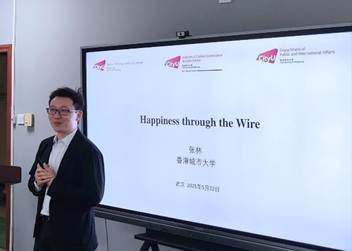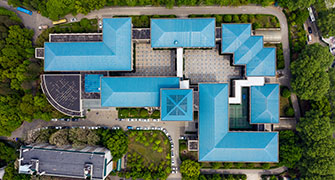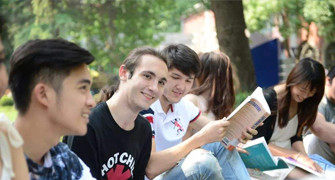Professor Zhang Lin from City University of Hong Kong delivered a thought-provoking presentation at the 133rd Luojia Forum on Economics and Management Innovation on May 22, 2025. His research, titled "Happiness Through the Wire: Measuring the Well-Being Impacts of Power Outages in Rural China," offered novel insights into how electricity disruptions affect quality of life in developing communities. The event drew strong attendance from faculty and graduate students at Wuhan University's School of Economics and Management.

The study addresses a pressing development challenge - the worsening reliability of rural power systems amid climate change and infrastructure strain. Professor Zhang's team employed an innovative methodological approach, combining household survey data from eight Chinese provinces with lightning strike patterns as a natural experiment. This design allowed for robust measurement of how power outages influence subjective well-being, while overcoming common statistical challenges in such research. The findings reveal that each outage reduces household happiness by 0.3 points (3.7%), with particularly severe effects in high-usage homes and areas without alternative energy sources like solar power.
Beyond quantifying these psychological impacts, the research breaks new ground by estimating what families would willingly pay to avoid outages - critical data for infrastructure investment decisions. Professor Zhang explained how disruptions compound hardship by disabling medical equipment, compromising temperature control, and hindering care for vulnerable family members. The presentation sparked lively discussion about methodology and policy implications, with attendees praising the research's blend of technical sophistication and real-world relevance.

Currently serving as Associate Dean at CityU's Institute for Global Governance and Innovation, Professor Zhang brings exceptional credentials to this work. An editor of leading energy journals and advisor to international organizations, his 80+ publications have shaped global conversations about sustainable development. This lecture continued his tradition of producing rigorous scholarship with direct applications to improving lives in developing communities worldwide.
Reported by Feng Rongkang | Reviewed by Huang Minxue
 Faculty and Staff
Faculty and Staff Academics
Academics International Exchange
International Exchange







